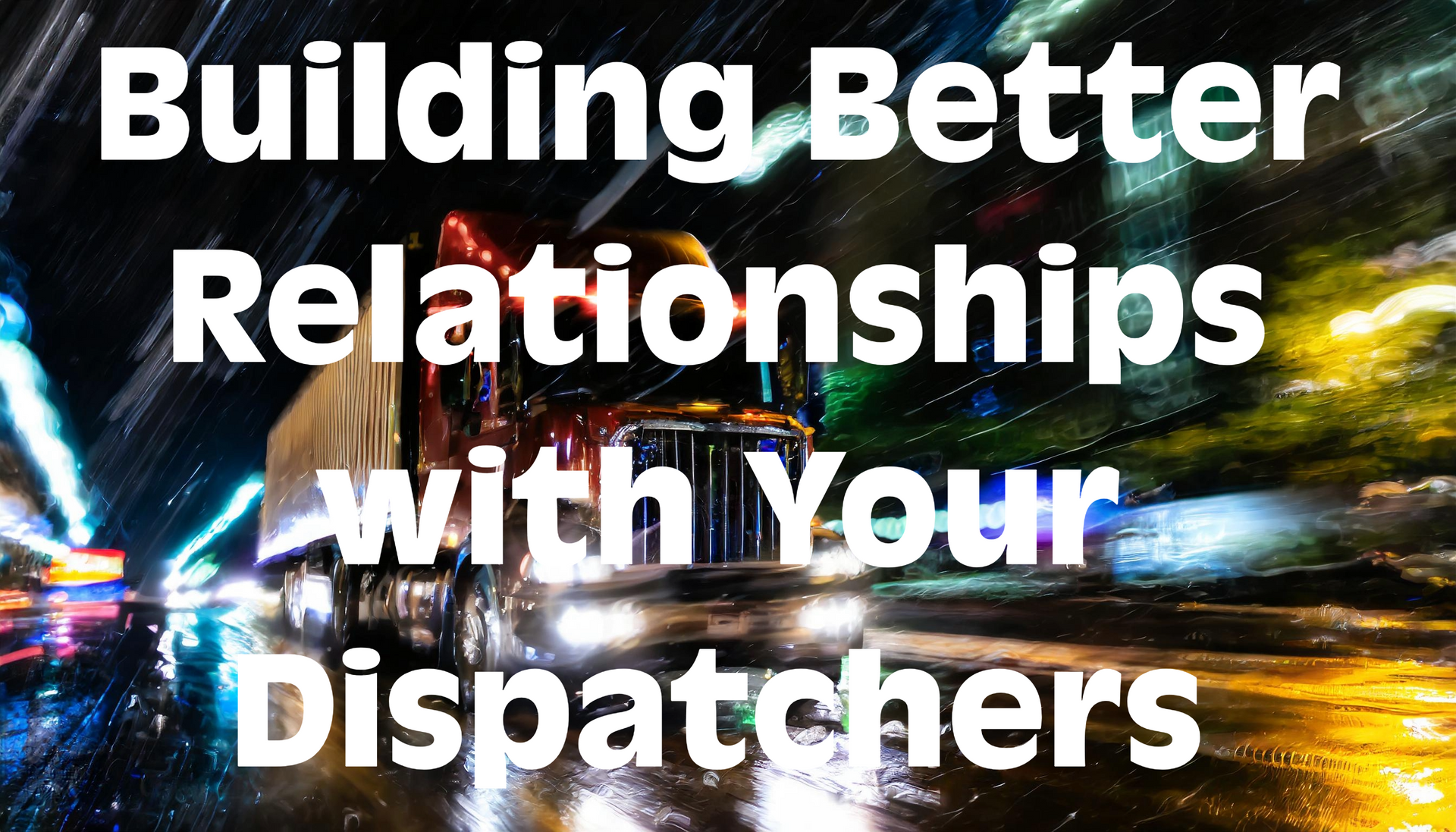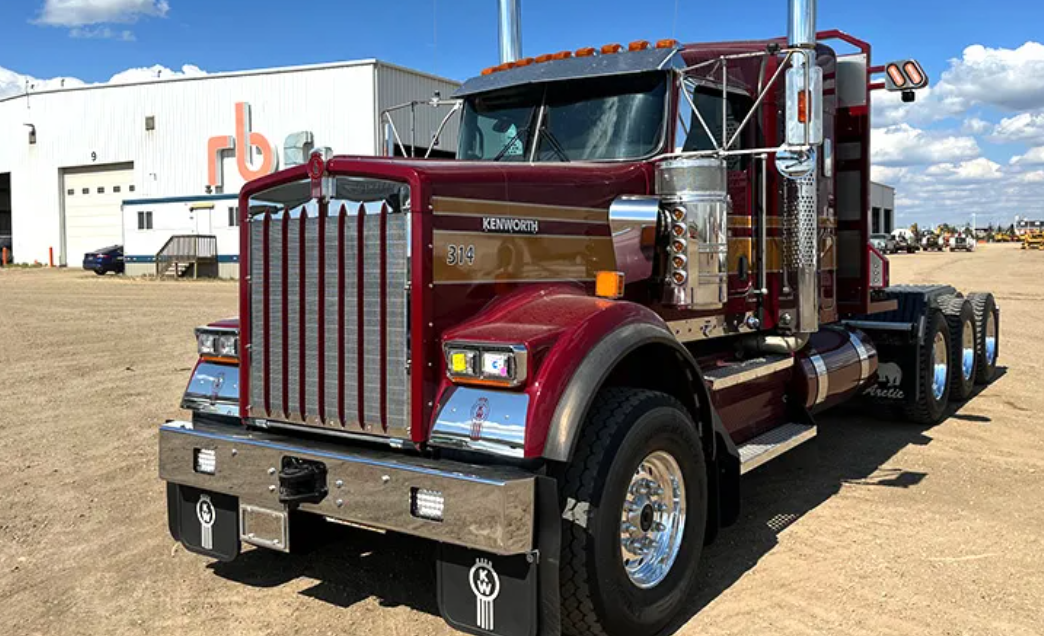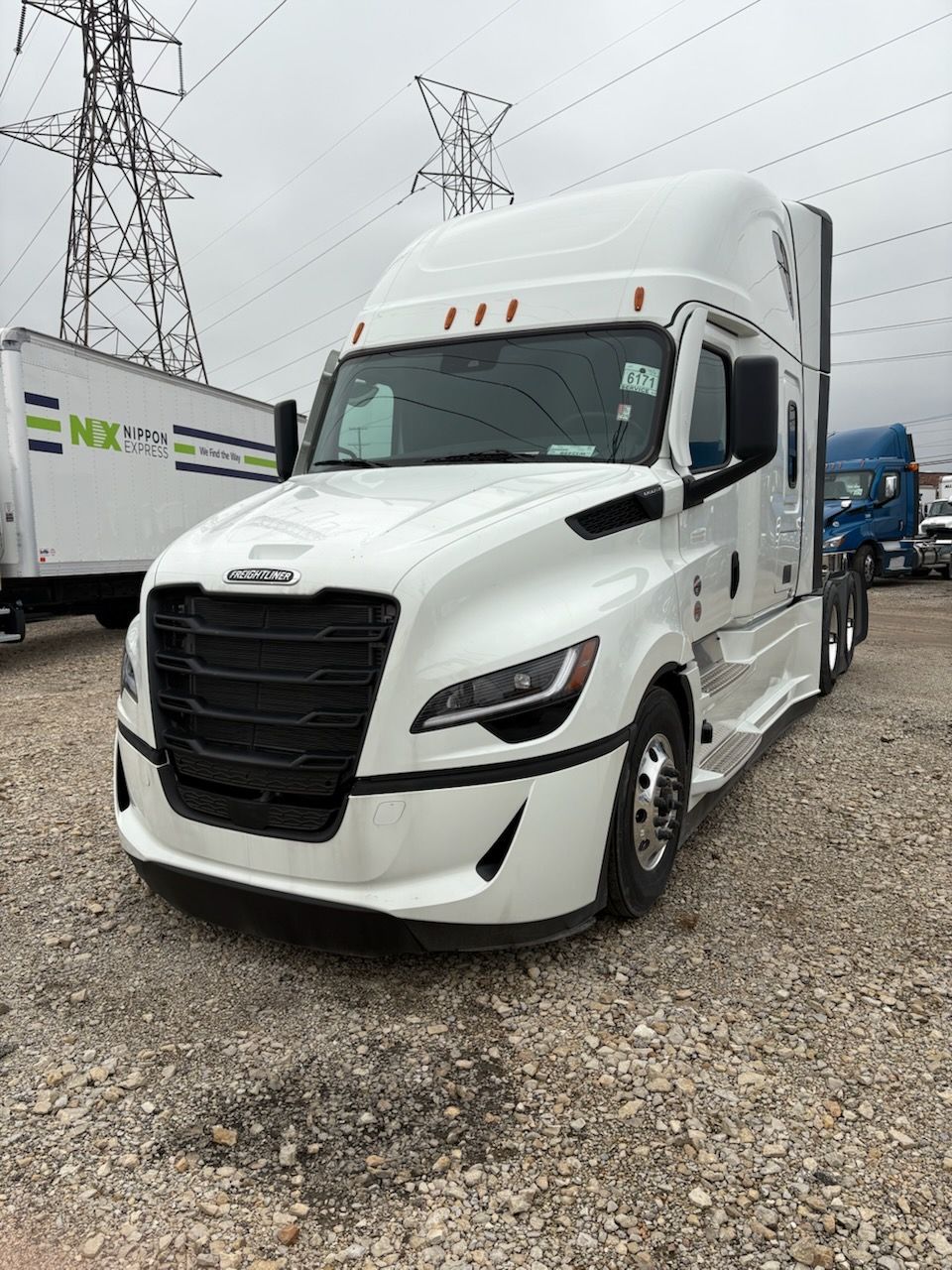Building Better Relationships with Your Dispatchers
Share this Article:
A Trucker’s Guide to Dispatchers

In the world of trucking, the relationship between a trucker and their dispatcher is crucial. Dispatchers are often the lifeline for truckers, guiding them through routes, handling logistics, and ensuring that deliveries are made on time. For many drivers, the dispatcher is not just a colleague but a vital partner in their daily operations. However, like any relationship, it requires effort, understanding, and communication to make it work smoothly. In this guide, we'll explore how truckers can build better relationships with their dispatchers, leading to a more productive and less stressful work environment.
Understanding the Role of a Dispatcher
To build a strong relationship with your dispatcher, it’s essential to understand their role. Dispatchers are responsible for coordinating routes, managing schedules, and acting as a communication bridge between the trucker and the company. They juggle multiple tasks at once, from finding loads to ensuring compliance with regulations, and they often work under tight deadlines. Recognizing the challenges they face can foster empathy and improve your interactions.
Communication is Key
One of the most important aspects of any relationship is communication. For truckers and dispatchers, this is no different. Clear, honest, and timely communication can prevent many common issues that arise on the road. Whether it's about load details, route changes, or delays, keeping your dispatcher informed can help them make better decisions and support you more effectively.
- Be Transparent: If you're running late or facing an issue, let your dispatcher know as soon as possible. This allows them to adjust plans accordingly and keeps everyone on the same page.
- Ask Questions: If you're unclear about instructions or need more information, don’t hesitate to ask. It's better to clarify than to make assumptions that could lead to problems later on.
- Provide Updates: Regularly update your dispatcher on your progress, especially when you reach key milestones like loading, unloading, or hitting traffic. This helps them stay informed and ready to assist if needed.
Building Trust and Respect
Trust and respect are the cornerstones of any successful relationship, and the one between a trucker and dispatcher is no exception. Building trust takes time and requires consistency in your actions.
- Be Reliable: Consistently meeting deadlines and fulfilling your commitments builds trust. Dispatchers rely on you to complete tasks as planned, and showing reliability can lead to better opportunities and more favorable routes.
- Respect Their Role: Understand that dispatchers have a challenging job, and showing respect for their efforts goes a long way. Treat them as you would want to be treated, with courtesy and professionalism.
- Handle Conflicts Maturely: Disagreements may arise, but handling them with maturity and understanding is key. Instead of letting emotions take over, focus on finding solutions that work for both parties.
The Importance of Flexibility
Flexibility is a valuable trait in the trucking industry. The nature of the job means that plans can change unexpectedly, and being adaptable is crucial.
- Be Open to Change: Whether it's a last-minute route adjustment or a change in delivery times, being open to these changes shows your dispatcher that you can handle the unpredictable nature of trucking.
- Offer Solutions: Instead of just presenting problems, try to offer solutions. If you foresee an issue, suggest alternatives that could work. This proactive approach can enhance your relationship with your dispatcher and demonstrate your problem-solving skills.
- Stay Positive: Maintaining a positive attitude, even when things don’t go as planned, can make a significant difference. It helps to create a better working environment and makes you someone your dispatcher enjoys working with.
The Benefits of Building a Strong Relationship
Building a solid relationship with your dispatcher can lead to numerous benefits for both you and your career. When you have a good rapport with your dispatcher, it can result in better routes, more consistent loads, and a generally smoother work experience.
- Better Load Opportunities: Dispatchers are more likely to offer the best loads to truckers they trust and have a good relationship with. This can lead to more profitable runs and less downtime.
- Increased Support: A dispatcher who knows you well is more likely to go the extra mile to support you when issues arise. Whether it’s finding a mechanic, rerouting you to avoid bad weather, or just being available for a quick chat, the support you receive can be invaluable.
- Job Satisfaction: A positive relationship with your dispatcher can significantly enhance your job satisfaction. It reduces stress, improves communication, and makes your workday more enjoyable.
Tips for New Truckers
If you're new to the trucking industry, building a strong relationship with your dispatcher from the start is crucial. Here are some tips to help you get off on the right foot:
- Introduce Yourself: Make an effort to introduce yourself properly and share a bit about your background. This helps establish a personal connection.
- Show Willingness to Learn: As a new driver, showing that you’re eager to learn and improve can impress your dispatcher. Ask for feedback and be open to constructive criticism.
- Start with a Positive Attitude: First impressions matter, so approach your new role with a positive and cooperative mindset. This sets the tone for your future interactions.
Handling Difficult Situations
Despite your best efforts, there may be times when your relationship with your dispatcher is strained. How you handle these situations can make or break the relationship.
- Stay Professional: Even in difficult situations, maintain professionalism. Avoid letting frustration lead to negative behavior or harsh words.
- Seek Solutions, Not Blame: Focus on finding solutions rather than assigning blame. If a problem arises, work together to figure out the best course of action.
- Know When to Escalate: If issues persist and you feel that your concerns are not being addressed, it may be necessary to escalate the matter to higher management. However, this should be done as a last resort and in a constructive manner.
A Partnership Worth Investing In
Building a better relationship with your
dispatcher is an investment in your career. It requires effort, communication, and mutual respect, but the rewards are well worth it. A strong partnership with your dispatcher can lead to more opportunities, better support, and a more enjoyable work experience. By following the tips outlined in this guide, truckers can foster a positive and productive relationship with their dispatchers, paving the way for long-term success in the trucking industry.
At Bloom Services, we are dedicated to helping truckers find the best job opportunities in the industry. Our experienced recruiters are here to guide you through the process and ensure you find a position that fits your needs and goals. Contact us today to take the next step in your trucking career.



